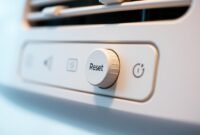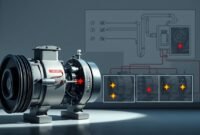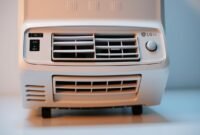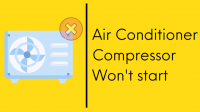You’ve used your HVAC system for some time, which generally works as expected. However, you’ve noticed that your air conditioning unit makes loud noises when starting up or shutting down, which is not typical behavior. AC isn’t made to make such noise.
Ignoring your Air Conditioner weird noises can cause minor problems to become expensive ones because they could indicate anything from a simple tune-up to expensive repairs or, in the worst-case scenario, the need to replace the entire unit. The earlier you can detect the noise’s origin and fix your AC problems, it will be better.
What could be why your air conditioner makes a loud noise when starting? There is some possible explanation for that.
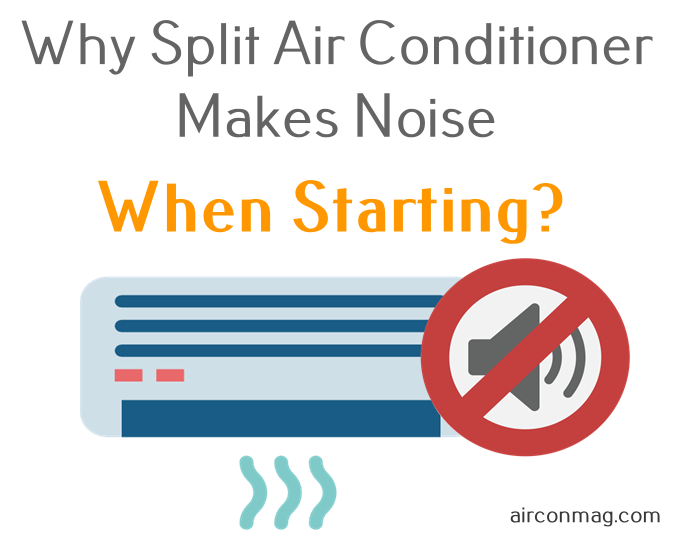
Split AC Indoor Unit Making Noise
It is not uncommon for an air conditioner is make noises. But it can be unpleasant when you want to relax or focus on what you are doing while it happens. Several noises might occur to AC.
Read also: Why Does My Air Conditioner Turn Off by Itself?
1. Air Conditioner Makes a Buzzing Noise When Starting
If your AC makes a buzzing noise upon starting but works fine like the illustration above, it is likely a noisy transformer acting up. There is a possibility that your fan motor is in bad condition. It is also possible that your starting capacitor is failing.
If this happens to your AC, you could start your fan yourself. However, worse comes to worst, and you could call a professional to help immediately.
2. AC Compressor Loud Startup
The AC compressor, a crucial HVAC system component, pressurizes the refrigerant. When your air conditioning unit makes noise only during startup, the issue likely lies within the compressor motor.
It’s essential to check the outdoor fan, including the condenser fan, for any signs of dirt, debris, or broken fan blades that might be causing the noise. When your AC unit makes noise only when you turn it on, the problem likely lies in the compressor motor.
The noise in the startup of the AC compressor itself is pretty familiar with a scroll compressor. However, the noise can be transmitted to the house when it escalates because of the refrigerant lines strapped to the beams. For this, ask your contractor to check the lines if possible. If it is not, call an expert to help you with it.
3. Loud Bang Sound upon AC Startup
A loud pop or bang sound upon AC startup, especially in systems with sheet metal ductwork, can indicate several issues. This noise could be due to an undersized duct, improper duct bracing, closed vents, a clogged filter, or even debris impacting the fan in the HVAC cage.
If you hear such noises, turning off your unit immediately is crucial to prevent further damage. When an AC makes this sound while starting, an undersized duct could be caused, by poorly done duct bracing, closed vents, or a clogged filter.
It is also possible that loud banging is caused by debris in the unit or a fan hitting the HVAC cage. If this is the reason for the loud bang sound, you should turn off your unit immediately. Keeping the system running while in this condition will damage your unit.
Read also: Outside AC Unit Making Loud Noise, What May Cause It
When your air conditioner makes a loud noise when starting, you should fix it immediately. If your AC is not supposed to make that noise, you should worry if it can damage your AC further. To prevent this, you may want to install a noise-reducing barrier if you consider your unit too loud, even in good condition.
If you notice clicking noises coming from your air conditioner unit or experience reduced cooling, it could indicate loose screws, dirty air filters, or electrical issues such as fan motor bearings, which may require repair by a professional technician. Ignoring these issues can lead to further electrical problems and costly repairs.
Additionally, regular outdoor unit maintenance, including cleaning and lubricating fan motor bearings, can help avoid potential issues with the air conditioner.
Schedule a regular inspection to ensure your AC works well without any damage whatsoever. If you think there is a problem or the beginning of it, call in an expert to help you before any real problems develop.
